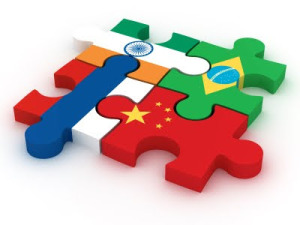Everyone wants to know more about volatility. The main question being will we experience more or less of it. Forecasts based on fundamental analysis alone are prone to be incorrect, especially when time frames are not defined, but I expect that we could see more volatility in general. The reason being globalization and integration of emerging market economies.
Before I explain further, I want to define volatility. I am specifically referring to large market moves in both bull and bear markets. While volatility is often viewed in a negative light, a day that sees a US index gain more than 2% is just as volatile as a day that sees the index fall by 2% or more. Volatility is the magnitude of change, not the direction. I can’t predict what will happen on a day-to-day basis, but I can see trends that could create more risk and more potential reward.
Emerging markets is where economic growth is strongest. China, Brazil and India all have burgeoning economies. Russia is also benefiting from its vast commodity resources, particularly in supplying oil and gas. As a whole, emerging market economies account for about 36% of global GDP.
What doesn’t receive as much attention is the burgeoning trade that is occurring between countries. This is particularly the case with China, which ranks among the largest trading partners for many countries, including Brazil and India. Even Russia is now trading oil and gas using a direct yen/ruble exchange rate fir contracts. As countries trade more with each other, weakness in one country has the potential to impact the economy of another.
Though overall growth has been very good, it is important to realize that emerging market economies are still young economies. No one knows how well their leaders will handle inflationary pressures, credit issues and economic slumps within their own borders. Given that no one has yet figured out the secret to long-lasting economic bliss, there is little reason to believe that emerging market leaders have a magical solution.
Therein lies the potential for future volatility. If China catches a slight cold, the rest of the world could get really ill, if not worse. The country did weather the last crisis well, but that was a global issue, not a financial or economic domestic problem. Weakness in other large emerging market economies would also have the potential to rattle markets.
On the other hand, in terms of global scale, emerging markets are rapidly increasing. This global integration is causing correlations between international markets to move higher than they have been on a historical long-term basis, there will still be diversification benefits that can be realized by investing in some of the smaller emerging market countries. The key is to have a long-term outlook, patience, financial discipline, and willingness to withstand higher levels of volatility.

